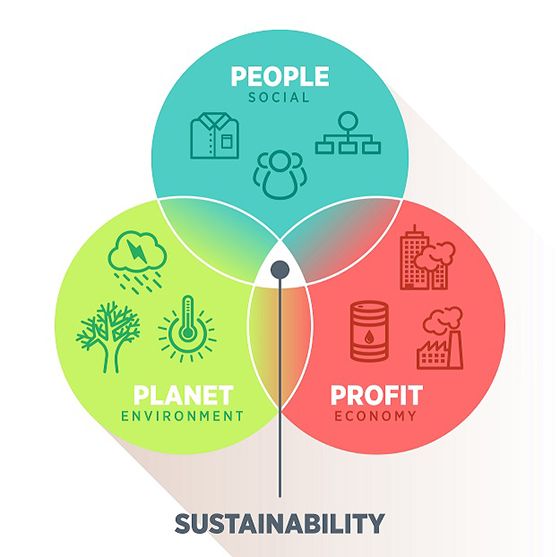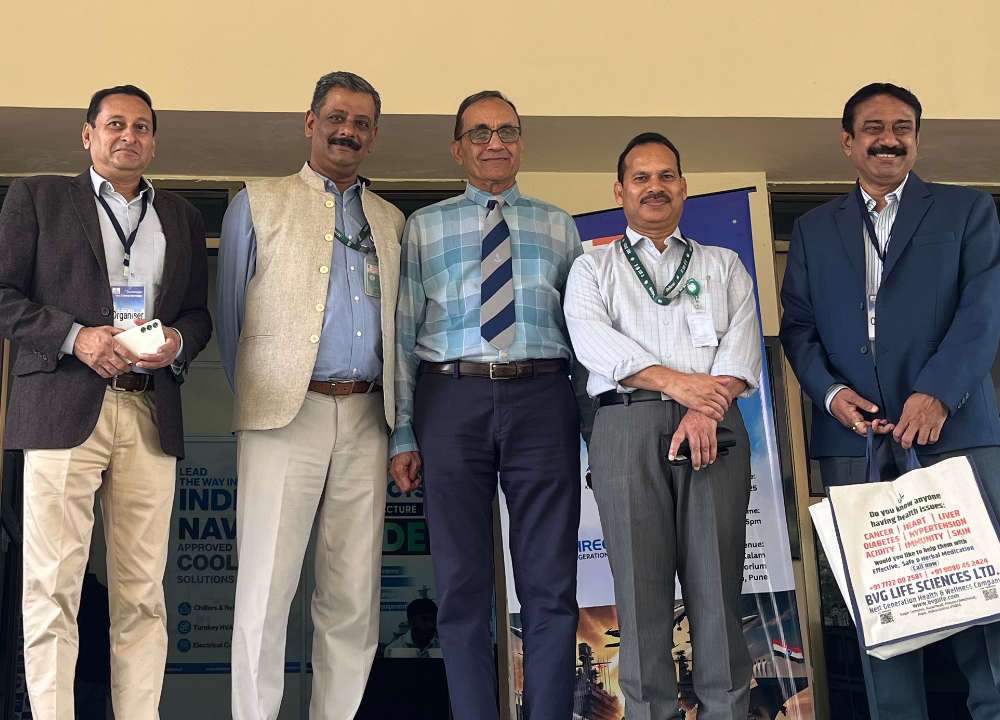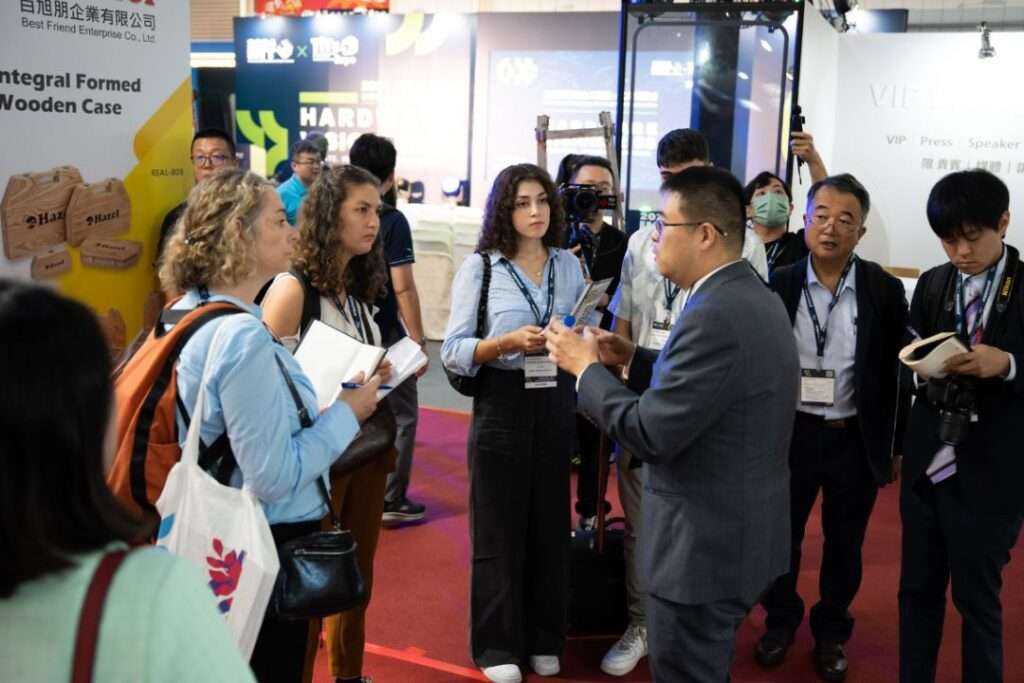“Sustainability means a certain amount of change in the way we function. Much like any positive disruption, this requires initial capital investment, sensitization to the new process, employee reskilling, etc. However, if we look at the long-term effect, these practices generate huge ROIs for the ecosystem and the company”, shares Ashish Srivastava, Head – Manesar Plant, Continental Automotive India.
Sustainability is not something that can be accomplished in a single day. Continental Automotive India has been implementing sustainable practices for decades, and they are still looking for ways to enhance this in their plants and encourage their teams to practice eco-conscious behaviour. Machine Maker in an exclusive interview with Ashish Srivastava, Head of Manesar Plant of Continental Automotive India, talks about Sustainability in Manufacturing, roles of environment, innovations, technology, Industry 4.0 and many interesting subjects.
After finishing Bachelor of Engineering with Production and Industrial Engineering from Motilal Nehru National Institute of Engineering, Ashish Srivastava worked with Bajaj Auto, Tata Cummins, Eicher Tractors, Cummins, and Magneti Marelli Skh Exhaust Systems before joining the Manesar Plant of Continental Automotive. Ashish also finished his Executive Program on Business Administration and Management from the Indian Institute of Management, Calcutta. Read on the excerpts from the interview.
What is the basic tenet of sustainable manufacturing for a company?
For sustainable manufacturing, preparing a roadmap with qualitative and quantitative milestones for an organization is a must. At Continental, we are focusing on four areas of sustainability, which are – responsible sourcing and business partnerships, emission-free mobility and industry, carbon neutrality along our entire value chain and closed resource and product cycle. Globally, Continental is in line with the Paris Agreement and will be completely carbon-neutral from 2022. Apart from this Continental India has taken various steps for sustainable manufacturing in the organization.
At Continental, we are working towards a paperless shop floor. For example, digitized standard operating instructions, change management monitoring, production planning, an expert system for debugging support, etc. This has helped us bring the paper-based file system and tracking to a minimum. We have introduced new measures such as servo-based moulding machines, temperature recording & control on air conditioners, natural ventilation in the new office at the Manesar plant. Apart from implementing water conservation practices, we are also recycling water. The water consumed by facilities in our plant is recycled and reused for gardening, road cleaning, etc.
At Continental, organizational safety is another critical aspect of sustainable manufacturing. For example, Continental’s Industry 4.0 practices increase the safety of the workforce by taking care of repetitive tasks in hazardous work conditions. In recognition of its efforts, Continental was awarded the Golden Peacock Occupational Health & Safety Award last year. To summarize the basic tenet would be to look at sustainability beyond just “green” manufacturing.
Although the words “green” and “sustainable” are sometimes used interchangeably, they do not mean the same thing. The terms have a similar meaning, with both highlighting a desire to safeguard the earth and its natural resources, but that’s about where the parallels end. Environmental programs aim at living within the limits of our natural resources. Whereas, sustainability refers to a system’s ability to maintain a high level of resources across time.
To give you an example, initiatives to increase women representation in the manufacturing industry is not a green initiative, but it is a must for the sustainable growth of an organization.
We have taken various initiatives like Women@Work, WeLead programs, etc., to increase women’s representation in the organization. Through our Women@Work initiative, women early in their careers can connect with senior executives and a global network of women from every area in the company. Additionally, Continental’s Software academy aims to upskill our employees, regardless of gender.
Continental’s activity in sustainable manufacturing in terms of innovation and services?
Over the last few years, Continental has implemented several sustainability initiatives. Below are some of the many measures taken by Continental to add sustainability to the workplace:
- 100 percent of the energy consumed in 2020 was derived from renewable sources at our Manesar factory.
- At our Bengaluru plant, we plan to use 100 percent renewable energy by the end of 2021.
- Continental examines global and internal health and safety issues on a regular and methodical basis to build long-term strategies for industrial safety, health management, ergonomics, hazardous substance management, and general safety.
- Continental is likewise making strident efforts to diversify its staff. To expand women’s presence in leadership roles, we’ve created many skill-building programs. This is also in keeping with Continental’s goal of increasing the proportion of women in the first two levels of management worldwide to 25 percent by 2025, maintaining the positive trend shown in previous years. At Manesar Plant, we have IC Cell which is run entirely by women. We also started the Women For Manufacturing in June 2021, to increase women’s representation in the manufacturing sector.
- We also make an effort to hire local residents for all of our positions, particularly on the shop floor. So, in addition to providing them with basic amenities such as a cafeteria, recreation, and transportation, we also offer skill development programs like DOJO Room that allow them to improve their skills and pursue better opportunities.
- Continental aims to achieve 100 percent carbon neutrality, 100 percent emission-free mobility and industry, a 100 percent circular economy, and 100 percent responsible value chains – all by no later than 2050.
- Taking a step ahead, Continental, together with our business partners, is aiming for a 100 percent responsible value chain by 2050.
What are the primary industry segments/ sectors Continental is offering its solutions?
Continental develops pioneering technologies and services for sustainable and connected mobility of people and their goods. Continental offers safe, efficient, intelligent, and affordable solutions for vehicles, machines, traffic, and transportation. Under automotive, we have achieved great success with our Autonomous Mobility and Safety, and Vehicle Networking and Information business areas.
The Vehicle Networking and Information (VNI) business area is developing some next-generation solutions and services for networking vehicles with drivers and passengers, other vehicles, the infrastructure, and the cloud. Across various business units – Human Machine Interface, Connected Car Networking, and Commercial Vehicle Services are working towards the strategy “Connect.Inform.Integrate” that sees the vehicle of the future as a partner that supports its passengers with intelligent and secure solutions. For Continental, tomorrow’s vehicle is seamlessly networked, user-friendly, comfortable, and intelligent.
The Autonomous Mobility and Safety business area develops, produces, and integrates active and passive safety technologies and controls vehicle dynamics. The focus lies on a high level of systems expertise and the interconnectivity of individual components. In this way, products and system functions are created along the SensePlanAct chain of effects. These make driving safer and easier and pave the way for autonomous mobility.
Continental tires and surface solutions have also designed innovative products and solutions for future mobility.
Globally, Continental Engineering Services is developing new technologies and products that particularly lead to advances in sustainable solutions in the field of electromobility along with Varta. They have jointly developed an innovative product for the two-wheeler market: A replaceable 48-volt battery pack for electrically powered two-wheelers with a power of 10 kW and more. Such vehicles are comparable in engine power and top speed with conventionally powered scooters from 125 cc engine displacement.
How Continental’s products are supporting the cause of sustainable manufacturing?
We are committed to sustainable manufacturing practices. There are four focus areas that we aspire to accomplish by 2050 at the latest, in collaboration with our value chain partners.
- We strive for 100% carbon neutrality along our entire value chain (products, operations, supply)
- We strive for 100% emission-free mobility and industries
- We strive for 100% closed resource and product cycles
- We strive for 100% responsible sourcing and business partnerships
Continental offers sustainable solutions through all business areas including the Tires business area and ContiTech. Continental Tires offers sustainable solutions to six of the world’s ten most successful electric vehicle manufacturers. In 2019, Continental along with Michelin and Smag created a joint venture to develop Rubberway®, a smartphone application designed to map sustainability practices across the natural rubber industry. Sustainable management is an integral part of our “Vision 2030” strategy program, there has been consistent research and development going on in new technologies, alternative materials, and environmentally friendly production processes in the tire sector. Furthermore, with ContiTech’s strategic focus is on ‘Smart and Sustainable Solutions Beyond Rubber’, the business area aims at intensifying the digitalization of factories worldwide.
Continental is supporting Europe’s top award for sustainability in commercial road transport Ground-breaking companies in the transportation and logistics sector are demonstrating how sustainability and profitable business practices can be successfully combined by implementing efficient fleet management, using energy from renewable resources, and fitting fuel-efficient tires to their eco-friendly fleets. Almost all automotive sectors now offer fully electric variants, from cabin scooters to small and mid-size cars to SUVs and high-performance sports cars. Each vehicle type requires its own tires configuration.
Continental has been working for more than a decade to improve the existing portfolio so that it can fulfil the needs of all-electric vehicles while also reducing emissions from combustion vehicles in a sustainable manner.
How sustainable manufacturing can be implemented with the aid of future technology and manufacturing processes in Industry 4.0?
Sustainability and Industry 4.0 complement each other in the real sense. Industry 4.0 positively impacts the three pillars of sustainability (economic, environmental, and social), also known as the Triple Bottom Line. In other words, sustainable manufacturing encompasses both the green and lean manufacturing methodologies and adds further dimensions to it.
Industry 4.0 and the Industrial Internet of Things (IIoT) have opened up possibilities for process innovations. This supports developing environmentally friendly materials, decarbonizing energy, developing digital methods for doing more with less, and extending the cycle of goods within a ‘zero waste to landfill’ framework. A simple example of the amalgamation of the two practices would be using AI-enabled motion sensors that automatically reduce the light in the area where less activity is predicted and switch it off if nobody is present.
Industry 4.0 practices increase the safety of the workforce by taking care of repetitive tasks in hazardous work conditions. For example, Computer Visioning and PPE Detection, Continental’s Raspberry-pi innovation for COVID-19. Employees working on the shop floor of the Bengaluru plant have a monitoring system watching over them as they enter the “change room”.A sensor-based device alerts if an employee overstays in the change room, using the RFID tag embedded within the ID cards.
How the Indian government is pushing for sustainable manufacturing at the policy and regulatory levels?
 The Government of India has introduced and implemented various policies and measures relating to sustainable development such as National Clean Air Programme and National Policy on Resource Efficiency (RE) among others. The Government of India has made a push towards increasing the renewable generation capacity in the country, which is in line with its commitments to the Paris Agreement on Climate Change. India follows a holistic approach towards its 2030 Sustainable Development Goals.
The Government of India has introduced and implemented various policies and measures relating to sustainable development such as National Clean Air Programme and National Policy on Resource Efficiency (RE) among others. The Government of India has made a push towards increasing the renewable generation capacity in the country, which is in line with its commitments to the Paris Agreement on Climate Change. India follows a holistic approach towards its 2030 Sustainable Development Goals.
We often think sustainable manufacturing is limited to reduce the environmental effects to a level by utilizing environmentally friendly materials, reducing all forms of waste, and reusing and recycling as much material as possible in the manufacturing processes. Although these are the important aspects for a company, it also involves people, communities, and the entire ecosystem. Promoting equal opportunities and focusing on skill-development of the employees is also an important part of sustainable culture and we at Continental truly believe in that.
We have initiated several programs to encourage our employees. For example, Continental initiated the WE-Lead program, which is a customized development program for grooming mid-level women leaders. We have also set up an internal Software Academy to train its automotive engineers. We encourage our employees by offering different job responsibilities to make the working environment healthy and safe for all demographics.
Continental in India – Celebrating 150 years in 2021
One of the programs that Continental India launched to mark 150 years of Continental is Women for Manufacturing Initiatives. This program aims to nurture and inspire girls and women to better understand this industry, have access to resources and learning, and consider manufacturing as a career option. The campaign will be the primary step for creating positive mindset shifts for women. Through various awareness campaigns, Continental aims to address genuine concerns and issues highlighted by schoolgirls.
The company is also focusing on the skill-development of ITI & engineering students. Continental is strategizing and evaluating various skill campaigns to enhance the overall skill levels of the women workforce. Through this approach, the company aims to create a two-way link between the industries/establishments and the colleges, to utilize the trained students in the country’s progress following a successful one/two-month internship.
The third aspect of the initiative will offer placement-linked programs for unemployed women. This initiative aims to up-skill the unemployed women and help mobilize them to various manufacturing companies at reasonable remunerations.








